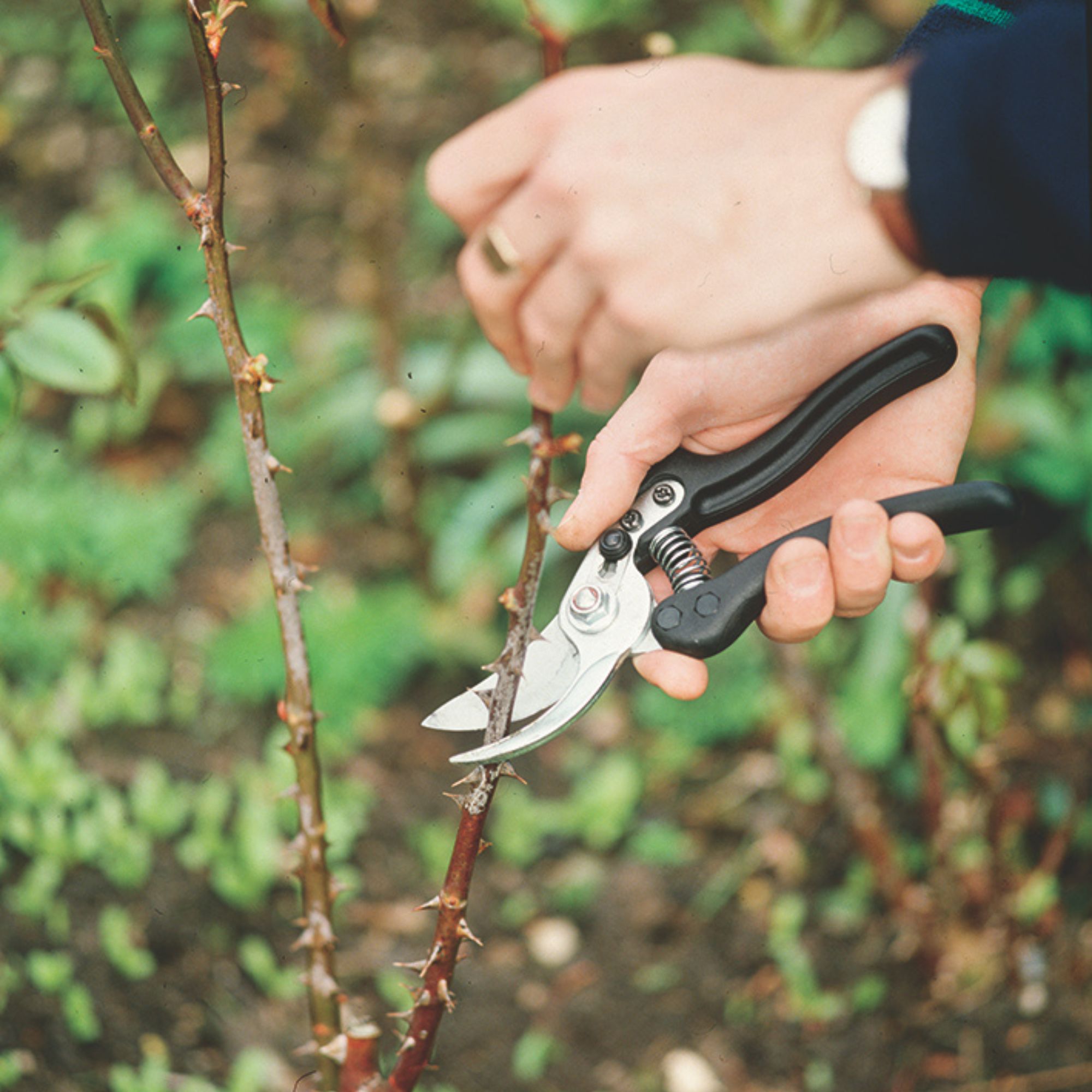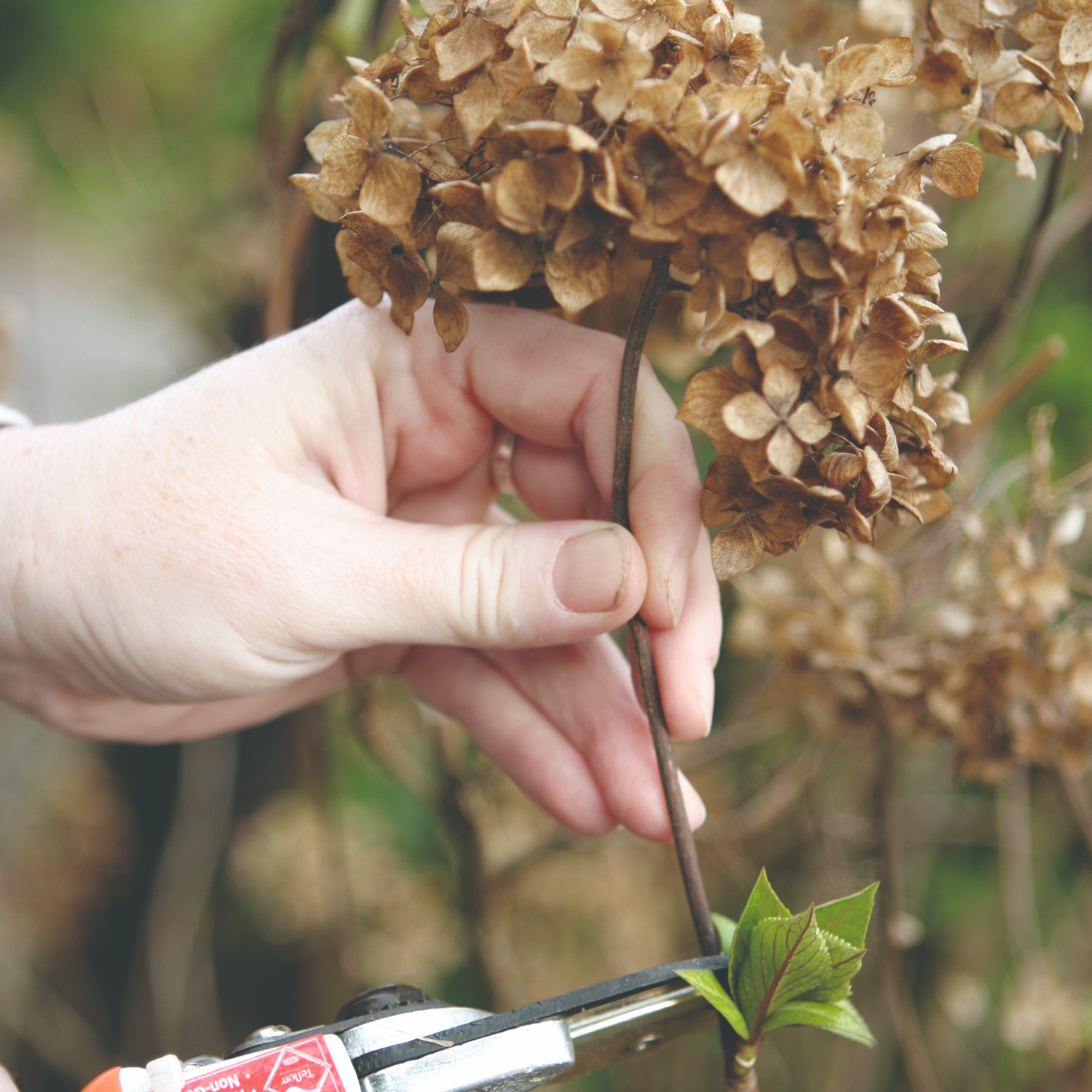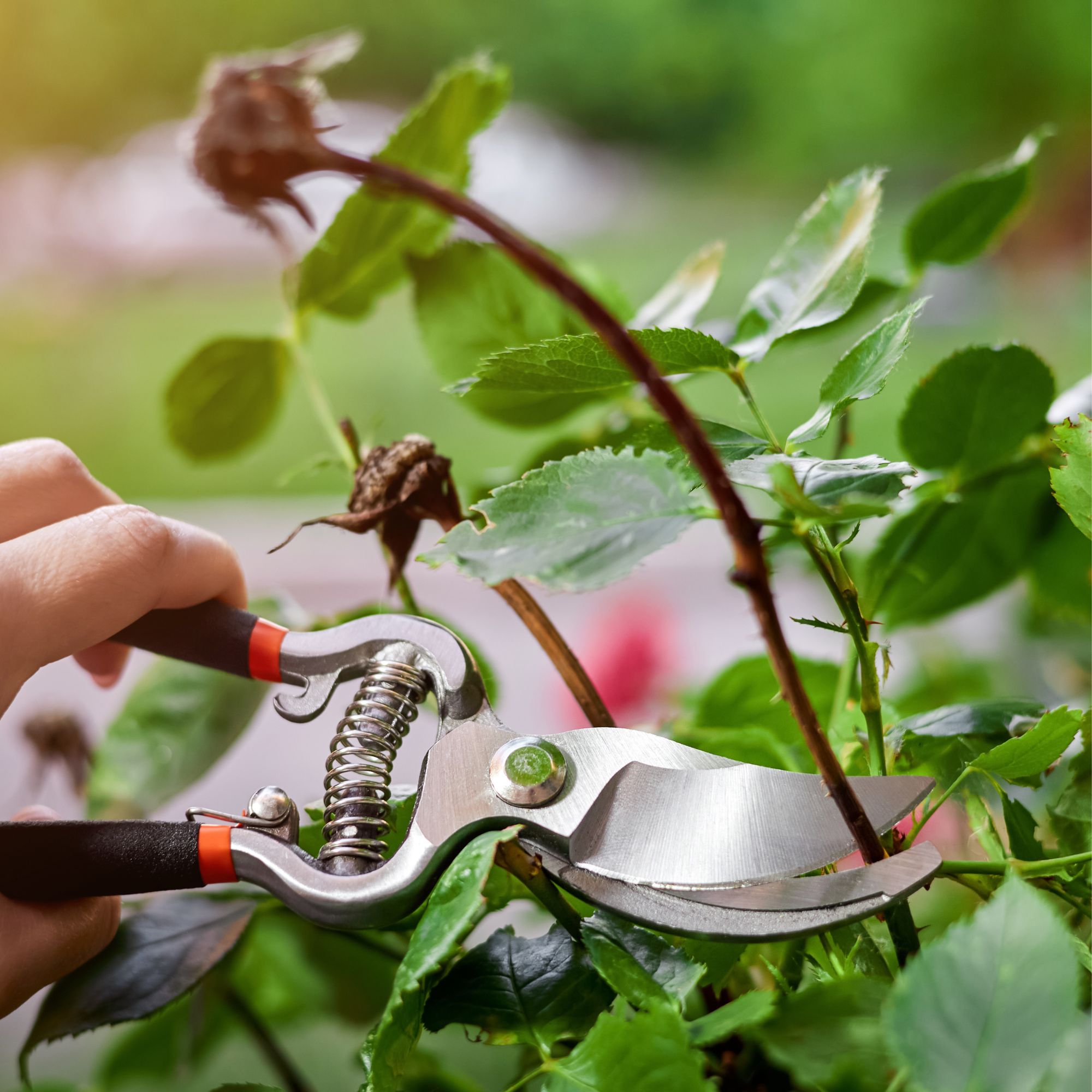
They have similar roles, but what’s the difference between pruning shears and scissors?
If you’re in the market for some new garden tools, it’s important to make sure you’re buying the ones that will best meet your gardening needs. You might know your spade from your shovel, but things can get a little more confusing when it comes to pruning tools.
To help you decide which pruners you should buy, I spoke to the experts to find out the difference between pruning shears (often referred to as secateurs) and scissors in the garden.

While both pruning shears and garden scissors are used for pruning jobs in the garden, they’re built for slightly different types of pruning. You’ll need to get familiar with the difference between pruning and deadheading.
‘Garden scissors are smaller, more delicate tools used to make precise cuts to herbs, flowers, or plant stems – perfect for the daily deadheading of flowers or flower arranging,’ explains Mark Sage, B&Q’s horticulture expert.
There are plenty of plants you should deadhead for a second bloom, so if you haven’t got a pair of garden scissors in your toolkit, it’s worth buying some. They’re a lot smaller than pruning shears, and much more delicate.
Where to buy garden scissors
Pruning shears, on the other hand, tend to be for heavier pruning jobs. They're commonly known as secateurs, and you've probably already got a pair in your shed (in which case, it's worth learning how to sharpen secateurs).
‘Pruning shears have a strong, spring-loaded mechanism and chunky blades, designed for cutting through tougher stems and small branches,’ explains Liam Cleary, outdoor plants expert at Old Railway Garden Centre.
Where to buy pruning shears
Whereas garden scissors are better suited to softer flower stems, pruning shears are designed to work on the bulk of the plant.
‘They’re ideal for shrubs, roses or fruit bushes,’ says Liam.

If you’re looking for a deadheading tool, garden scissors are your best friend – but if you’re hoping to invest in some heavy-duty pruners, pruning shears (or secateurs) are the way forward.
It’s worth having both in the shed!







